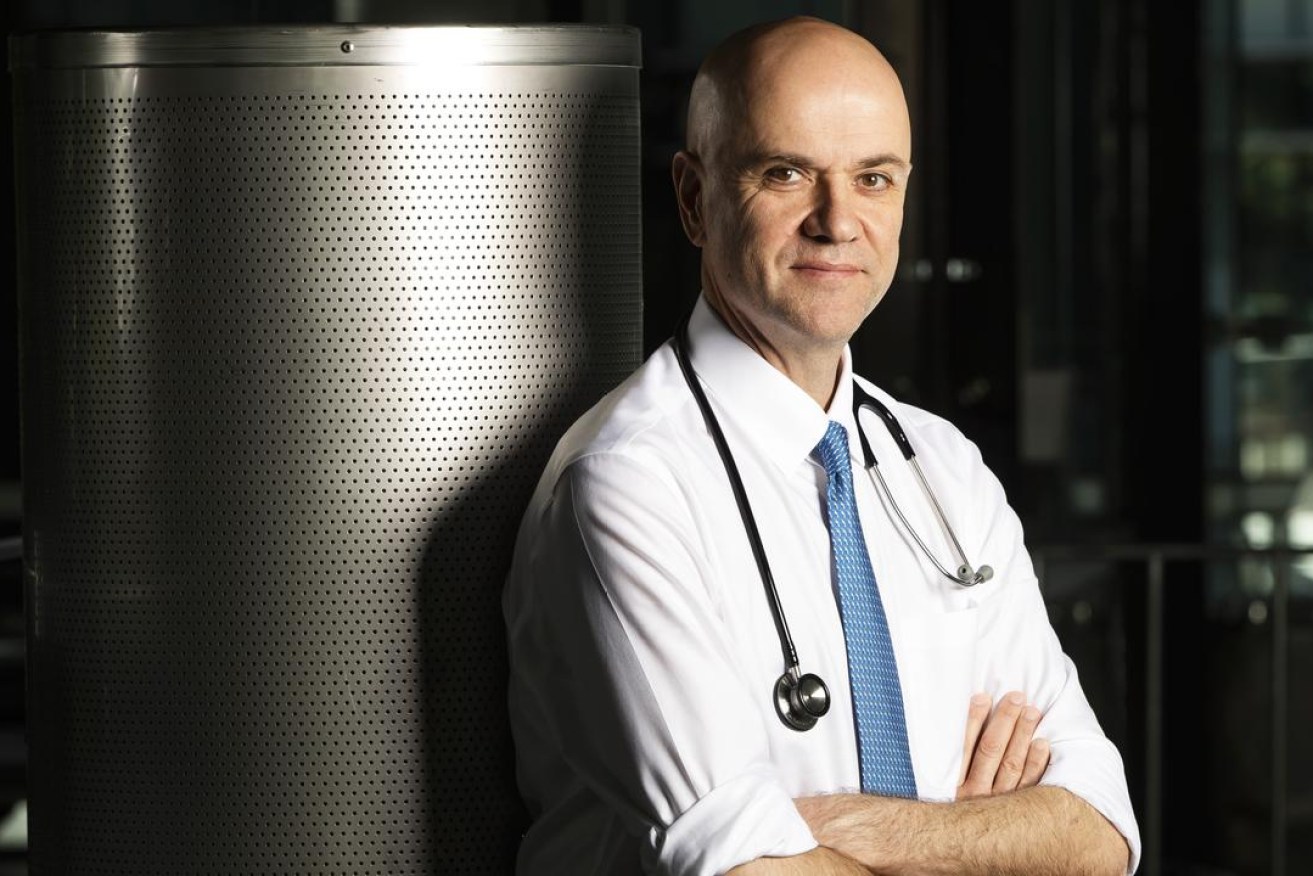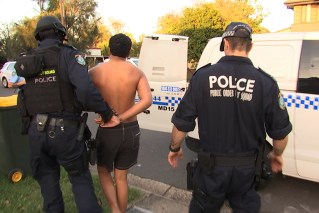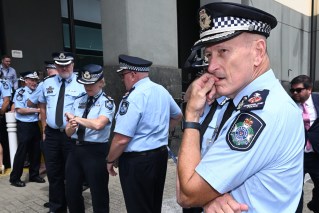New health boss wary of ‘spot fires’ causing surge in virus cases
Health authorities are preparing for state-wide Covid outbreak “spot fires” and a surging number of cases as Queensland borders were flung open this morning.


Queensland's Chief Health Officer Dr John Gerrard. (Photo: AAP).
The state’s new Chief Health Officer, Dr John Gerrard, warned the health system would be challenged as people began streaming into Queensland.
“What we expect in the coming weeks as the many thousands of people start to cross the borders is that we are going to see increasing numbers of spot fires,” Dr Gerrard said.
“Positive people will cross the border unknowingly and eventually we will get a surge.
“How long that will take, we don’t know, but our focus as we move forward is how to deal with the surge with the increasing number of people in Queensland with the virus.”
It was a different story further west, with some crucial border crossings still closed due to ongoing flooding.
The flooding prompted a warning to motorists attempting to avoid congestion at more populated border-crossings nearer to the coast.
Balonne Mayor Samantha O’Toole issued a blunt statement to motorists on Saturday warning of the dangers, just as water levels in Mungindi were expected to peak at 7.9 metres.
The Balonne River in the district’s main centre of St George is expected to peak at 10.75 metres on Thursday, with slowly receding floodwaters expected to see Mungindi and surrounding communities isolated for up to 10 days.
“Roads will have been damaged by flood waters and that damage is not obvious until it’s too late if you try to drive through water over a road,” O’Toole said.
“Please, don’t do it.”
Gerrard, who started in the chief health officer role on Monday – the same day as his own 21-year-old daughter will join the cross-border influx, returning to Queensland from Sydney – told ABC Gold Coast that most positive cases of the virus would be able to be managed at home rather than in hospital.
“We’ve been preparing for this for two years. We have a lot of systems in place,” Gerrard said.
“We will ensure that no patient goes untreated should they present at hospital.
“But I’m not going to lie. It will be a challenge. There could be large numbers of patients, we don’t know precisely.”
The Gold Coast infectious diseases expert replaces Dr Peter Aitken who has been acting in the role since the departure of Dr Jeannette Young.
He said the Omicron variant had thrown authorities the latest “curve ball” and meant the virus could no longer be contained.
“The need to get vaccinated is so critical. This trumps any other concern whatsoever,” he said.
“In the coming months almost everybody will be exposed to this virus in Queensland, so it is absolutely vital that everybody has their vaccination and if it’s been five months since their second dose they should have that booster.”
On the border at the Gold Coast this morning, traffic began building in the lead up to peak hour as conditions under the state’s border crossing direction 56 were imposed.
Despite expectations of 50,000 people a day and hours-long delays, drivers before peak hour were lined up for only around 20 minutes, well below wait times of previous weeks.
Gold Coast Police Acting Chief Superintendent Rhys Wildman said police were able to check every car between 1:00am and 7:30am this morning, but police anticipated a more risk-based approach as traffic from Queensland-bound arrivals banked up.
Fewer than 10 people were turned around this morning.
Meanwhile, Goondiwindi Mayor Lawrence Springborg has forced the State Government to clean up confusing new border restrictions for his district.
Springborg said his community had been spared a tide of confusion resulting from planned State Government health protocols that were modified at the eleventh hour on Saturday.
If the plans had have taken effect from today, they would have allowed unvaccinated Moree Plains Shire residents to access shops and essential services, with the same rules preventing a fully vaccinated worker from the same district over the border in NSW from serving them.
Springborg had slammed the proposed health directive as making no “logical sense” and would have hurt business in the lead-up to Christmas.
With the Queensland border re-opening due to double vaccination rates reaching 80 per cent of the population, the Goondiwindi region leads the jab tally with 91.5 per cent of residents double dosed.
The Moree Plains Shire local government area (LGA) is 86.5 per cent double-vaccinated, a rate not achieved by any other LGA in Queensland except Goondiwindi, although as of last week still had 30 active Covid cases in the community.
Health Minister Yvette D’Ath announced on Saturday that the Moree Plains Shire LGA would remain a restricted border zone, while fully vaccinated residents of NSW communities Tulloona, Boomi, Boggabilla, Toomelah, Mungindi and Garah would be exempt from the ‘restricted border zone’ conditions.
Springborg said the State Government backflip would not have happened without the community’s strong uptake of vaccination.
“I look forward to Monday morning when we can again see more local residents back at work and in our main streets, and most importantly spending time with loved ones,” he said.












